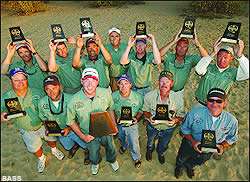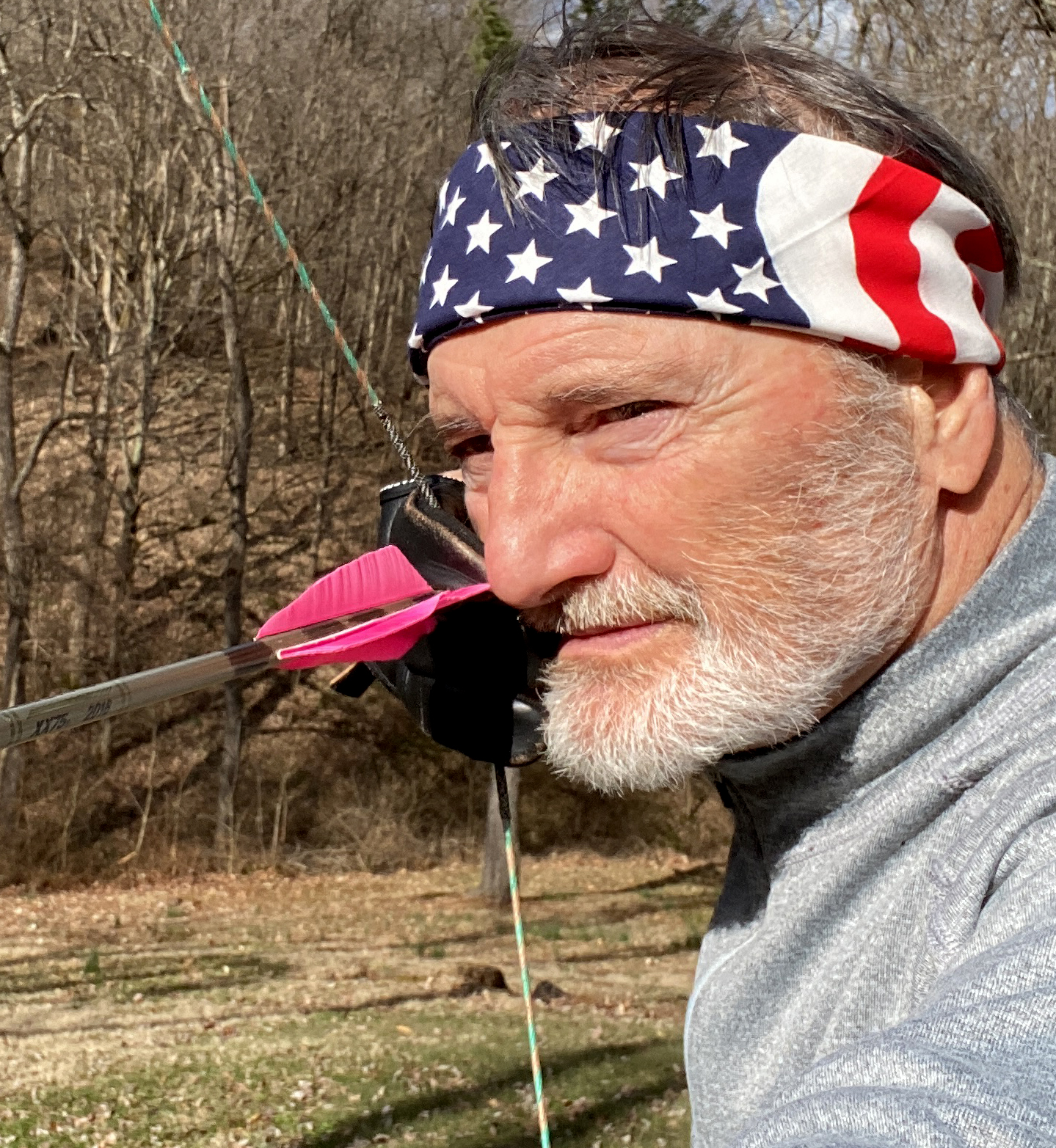
GILFORD, N.H. — With so many capable anglers competing at the CITGO BASS Federation Eastern Divisional on Lake Winnipesaukee, everyone expected the battle for first place to be closely contested. At the end of Day 2, only 3 pounds separated the top 10 anglers. Joe Lucarelli of Center Harbor, N.H., led with 26-1.It was no surprise that Joe, age 25, was leading the pack. His father, Steve Lucarelli, is a noted full-time bass guide on Winnipesaukee and a standout tournament angler. In fact, he was also a member of the New Hampshire team, was only six places behind his son, and was a favorite to win.This father-and-son have been competing in tournaments together for nearly 10 years. Their success has earned them sponsorships from MB Tractor and Equipment, Yamamoto, Trilene, Fenwick, Stratos, Mercury, Lowrance, Falcon Lures, Ocean Wave sunglasses, and MegaStrike fish attractant.During the year preceding the Divisional, Joe, who is in sales with MB Tractor and Equipment, fished Winnipesaukee almost every weekend. He targeted the lake's smallmouth bass, figuring they would be more consistent than the less-abundant largemouth."This tournament is about the only thing I've been able to think about for a year," he said.Joe settled on eight to 10 fishing spots that were producing better-quality fish. The key locations were short grassbeds on sand and mud flats 25 to 35 feet deep. Yellow perch, Joe claims, congregate over the grass in the fall, and smallmouth move in to feed on them.
Though he had confidence in his areas, Joe struggled every day to get six or seven keeper bites. He also had to show the bass a variety of Yamamoto baits, including a tube with a 3/8-ounce jig, a Hula Grub on a 3/8-ounce football jig, a Cut Tail on a drop shot rig, and a Carolina rigged lizard.For everything but the Carolina rig, Joe relied on a 6-foot, 6-inch Fenwick Techna AV medium heavy spinning rod matched with 20-pound-test SpiderWire with an 8-foot fluorocarbon leader. The thin braid sliced through the water, improved his sense of feel and delivered rock-solid hook sets.The first day I caught them on a tube pretty good," Joe said. "The second day I caught them on the drop shot."The bass grew more particular on Day 3, but Joe managed to piece together a limit on a drop shot rig, a Carolina rig, and a Hula Grub. He caught three fish in the last 15 minutes that allowed him to secure a 12-9 limit. That gave him a total of 38-10 and a winning margin of more than 2 pounds. Joe's dad finished in fourth place.While being interviewed onstage about his victory, Joe remained cool and composed while telling the crowd how he caught his bass. When he was asked about his relationship with his father, he suddenly choked up. The only words he could muster were"He taught me everything."
Notes and quotes
Purolator Big Bass
New Hampshire's David Swett claimed the $1,000 prize for catching the Purolator Big Bass of the Eastern Divisional. The largemouth weighed 6-6 and was caught the first day. Swett was one of the few anglers in the tournament who targeted largemouth bass. He led the first day with 15-4 and finished 10th overall. He caught all his bass pitching black-and-blue 3/8-ounce Lil' Hustler and Mike Plouffee jigs to boat docks.
"I had to pitch the jig into small openings between the docks and the boats," Swett said. "And they rarely hit on the first pitch. I had to show the jig to them a second time to get the bite.
Fizzing bass
Given the fact that Lake Winnipesaukee is New Hampshire's best overall fishery, you can understand why John Viar, a New Hampshire fish biologist, was concerned about the live-release procedures at the Eastern Divisional. He knew that many of the smallmouth would be caught from deep water and that their air bladders would be distended. These fish would have a reduced chance of survival if released in this condition.
Viar was relieved when he stopped by the official release boat and watched Russ Ritter, a regular member of the BASS tournament staff, working with the bass"Russ did a great job of fizzing the bass," Viar said. "That's really import at this time of year, when many bass are caught deeper than 25 feet."
True love
Eric Stewart of Morgantown, W.Va., praised his wife after winning his state's division with 32-12 and qualifying for his first National."I'd like to thank my wife," Stewart said. "She let me pull our new boat up here on our honeymoon in June and spend the week practicing for the tournament. It really helped."
Fish strengths
Ed Cowan, winner of the New Jersey Division with 28-5, claimed his sixth trip to the Nationals by resorting to his strengths. He fished for smallmouth bass the first day and caught a limit that weighed only 7-0. He started out fishing for smallmouth the next day, but couldn't get a bite."Halfway through the day I got disgusted," Cowan said. "I pulled out a flippin' stick, found the nearest marina on the map, flipped boat docks like mad, and caught enough largemouth to get to the National. Fishing your strength makes a big difference."
"Cool"
Virginia's Todd Schaaf eked-out a 1-ounce advantage over teammate Robert Grike to qualify for the National, with 30-1. The fact that Schaaf caught smallmouth bass from deep water surprised him more than anyone else.
"I live on the Potomac (River), and I'm not used to fishing more than 2 or 3 feet deep all day," Schaaf said. "And here I am fishing 25 to 45 feet deep. I mean, it's crazy. You throw out in the middle of nowhere and a smallmouth bites. It's kind of cool." Schaaf had a milk run of 10 spots that he ran all three days.

